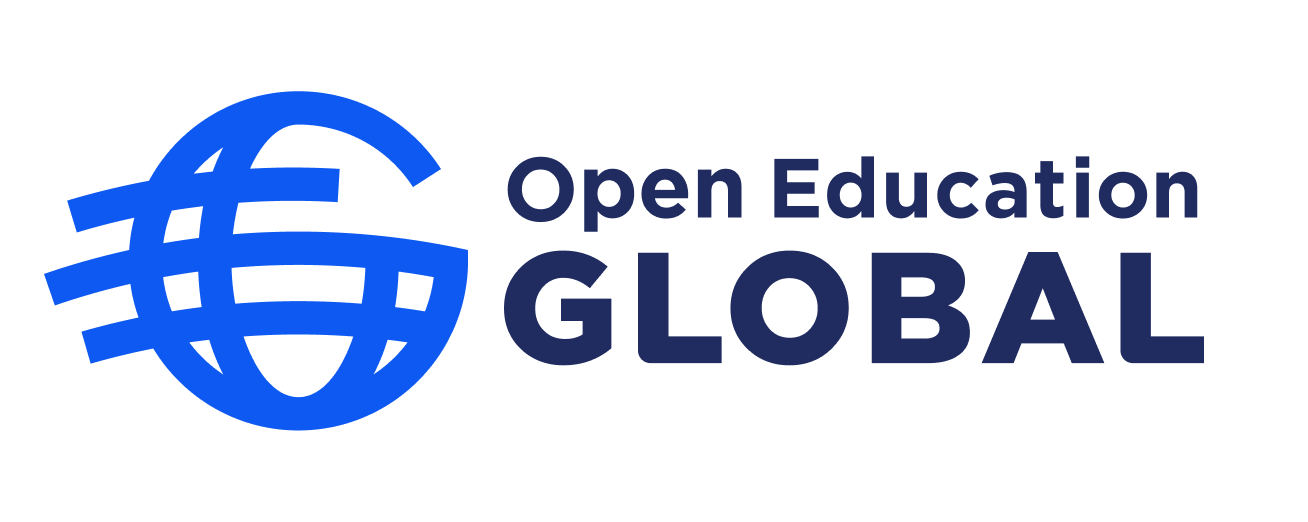On the banks of Charles River in Cambridge, Massachusetts you will find a stately university campus that is of some significance to the field of Open Education.
Of course, we are talking about the Massachusetts Institute of Technology (MIT) and the above mentioned significance is much more than “some.”
The 2001 launch of MIT OpenCourseWare (OCW) where course content of all MIT courses was shared openly under Creative Commons Licenses was a key catalyst in the worldwide spread of the Open Education movement. As of August 2022, over 7000 classroom lectures have been shared to the OCW YouTube Channel followed by over 4 million subscribers. Explore a few samples of OCW’s “Hidden Gems.”
The interest of other institutions to follow MIT’s groundbreaking move of openly sharing their course materials led to the 2008 creation of Open Courseware Consortium (OCWC), now known as Open Education Global (that’s us!). That connection is visible in the right side of the footer of the MIT OCW web site. MIT is a long time sustaining member of OEGlobal and we appreciate that this connection has been sustained to the present.
Thus, in December 2022 when new OEGlobal Executive Director Andreiá Inamorato had meetings planned in Boston, she had good reason to pay a visit to that Cambridge campus of what we might consider OEG “Member Zero”.
Andreia reports a very constructive meeting with three representatives of the 164 member team from MIT Open Learning.

As a recognized leader of innovation in many disciplines, MIT has especially demonstrated continued investment in ‘Open’ over the years, by placing it at the heart of major initiatives that reach far beyond. MIT Open Learning is the hub for several educational initiatives, such as MIT Open CourseWare, MITx, MicroMasters, and MIT Open Learning Library.
Some of MIT Open Learning’s innovative programs live under the MIT Open platform, including Chalk Radio, an OpenCourseWare podcast about inspired teaching, the Lemelson-MIT Program Let’s Invent, the MIT Alumnai for Climate Action platform, as well as MIT Bootcamp, Teach Remote to support remote teaching, and Justin Reich’s investigation into the art and craft of teaching through Teach Lab, plus much more.
One example of an OEGlobal/MIT connection already established is via OEGlobal’s Community College Consortium for OER (CCCOER) in a shared goal to advocate for and support the development of inclusive, antiracist, and diverse OER to enhance educational equity. Recognizing the leadership of community colleges in equitable access to education, the MIT team has reached out to CCCOER to identify community colleges interested in adapting and enhancing Open Educational Resources (OER) from OCW to use with their students. CCCOER co-leads the Open for Antiracism Program, a faculty development program aiming to transform teaching and learning to be antiracist through the use of OER and open pedagogy.
In her visit with the MIT Open Learning team, Andreia reports that a number of new ideas for MIT/OEGlobal collaboration were discussed. You can expect to learn more in the coming months through our communication channels. Plus we are scheduling an upcoming OEG Voices podcast where we can learn more about the current projects and interests of MIT Open Learning and how to create mutually beneficial opportunities with the OEGlobal community.
We expect many readers have experienced the value of MIT’s contributions to Open Education. Do you want to learn more about or engage with MIT Open Learning initiatives? Share your perspectives and ask questions with ongoing conversations in the OEG Connect community.
Featured Image: Massachusetts Institute of Technology, located in Cambridge, skyline across the Charles River is Boston, Mass. public domain Tichnor Brothers postcard image from Wikimedia Commons.
Share your MIT experiences …
Click on reply to add your experience with MIT or any observations you care to share!


I’m excited to expand our OEGlobal connection to MIT and as well the upcoming OEG Voices episode with @cjnewton and colleagues. Questions or comments here can help shape that conversation (hint hint, please reply to this topic).
I was a rookie educational technologist at the Maricopa Community Colleges in 2001 when MIT President Charles Best announced the launch of OCW, and remember so much conversation about how bold a move it was. First it was such an early force in institutional embracing of Creative Commons licenses but also the powerful statement that “MIT course materials are not an MIT education” that really set a marker that it was not “giving away the store”.
I was fortunate to have been invited to give a CrossTalk seminar at MIT in 2005 (woah I found it in the archives and it actually mentioned “Jackalopes” in the title) and remember being awe of getting to be on campus. Hey I visited at least the OCW hallway
The Halls of OCW flickr photo by cogdogblog shared into the public domain using Creative Commons Public Domain Dedication (CC0)
I can also remember being in Boston for a conference in the mid 2000s and I set out by train to explore the campus, wandering into the MIT Media Lab where there was a project showcase going on… apparently I had snuck into an event for funders and I was politely escorted from the premises!
But that was long ago, and we are so fortunate to have this opportunity to network with our MIT colleagues and also look for ways to get involved with their current work. I cannot wait, Curt, to start ideas brewing.
And please add your own MIT / OCW stories of experience, and/or where their open education content and concepts are part of your work today.
Worth noting for those in or interested in the Fediverse… MIT has an community instance run by the MIT computer club https://mastodon.mit.edu/
This is an interesting collaborative opportunity. If there are opportunities to engage MIT’s OCW in initiatives or find out more how to join/support, I’d be happy to!
I must admit that OCW seems like a daunting institution, rooted in Literature Reviews that commend OCW’s impact on open and distance learning at a time when the internet was not seen in the same legitimacy as an educational space as today. My perspective on this is, of course, a textbook example of why individuals or groups do not contribute to communities, fearing there first must be some establishment of authority or expertise before concepts, research, or ideas can be introduced. As a Ph.D. Candidate, I feel the grips of imposter syndrome more often than not.
That being said, I hope others who have similar feelings as me can band together in this community to support whatever initiatives may help move research and accessibility forward. Hope to hear more soon!
Best,
Alex
I can understand looking at the reputation and the massive amount of “stuff” you see looking at OCW from the front door. The premise though is beautifully simple (at least from the initial launch in 2001) – all undergrad course materials will be shared.
Complex topics, full class lectures… but when you zero in, look for the gems of human presence (I found from the links to OCW Hidden Gems) like
https://www.youtube.com/watch?v=GrrEdi84cV4And here is a little secret, Alex… even those confident people you see in the materials, I bet many of them deal with those inner questions of the value of their work.
So here is your opportunity. We have out podcast session set up with out MIT colleagues this week. Put out any questions or comments here you would like us to pose. How to get involved in research? How to fully address accessibility? The mic is open.
Alan – thank you for the response! I feel excited at the opportunity to pose a question or two. I will have to think on this and post something thoughtful. I appreciate this opportunity!
-Alex